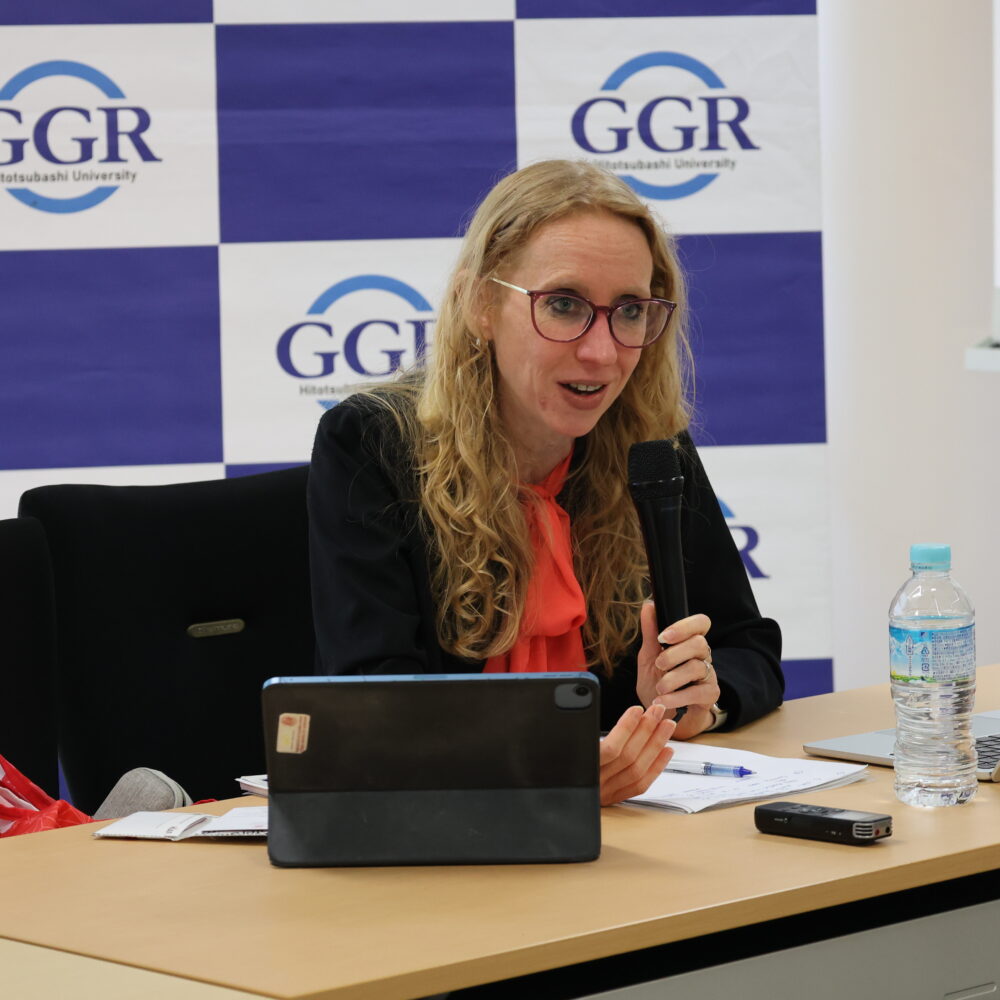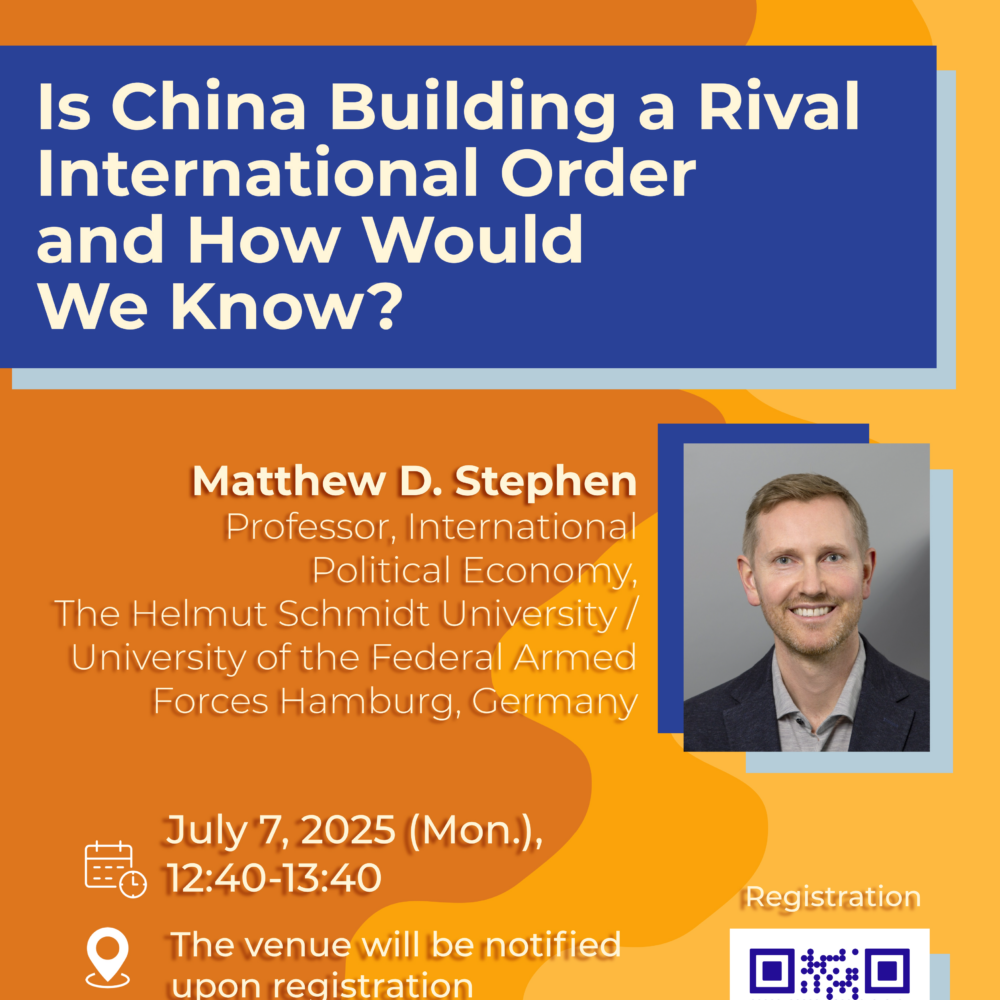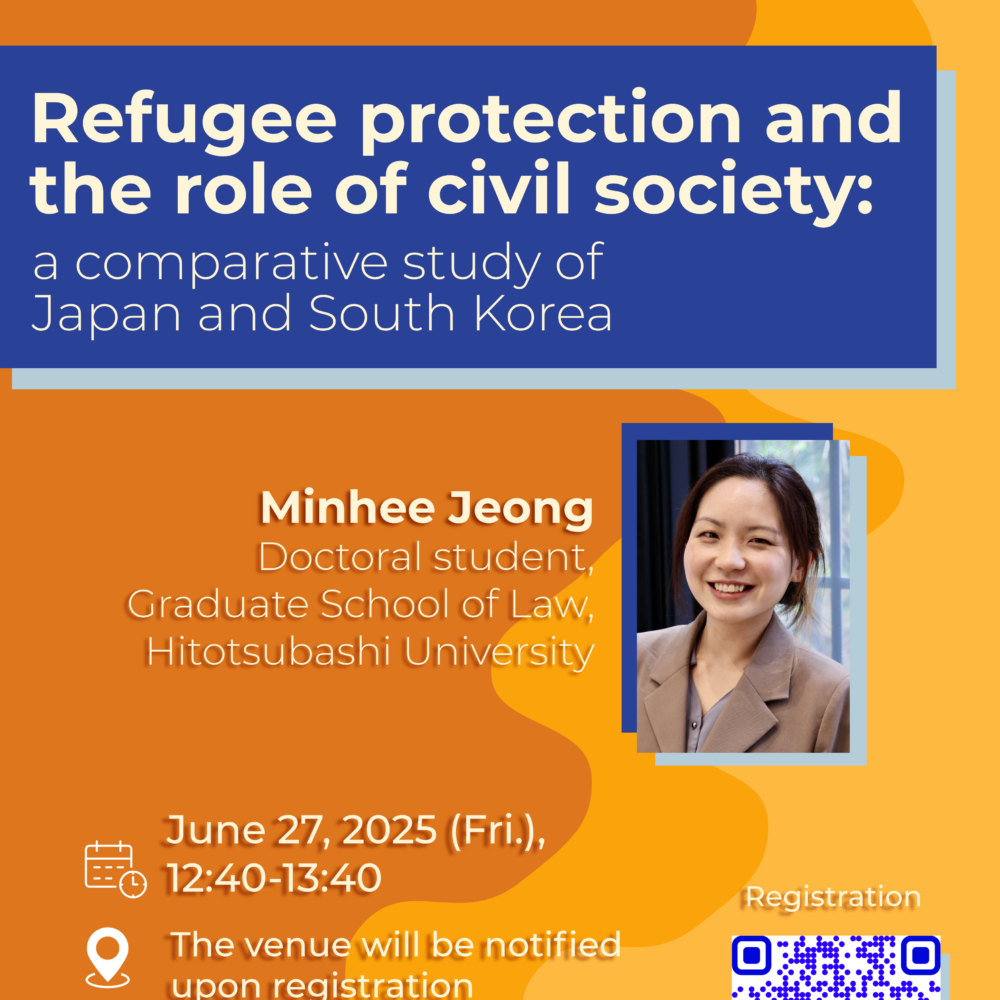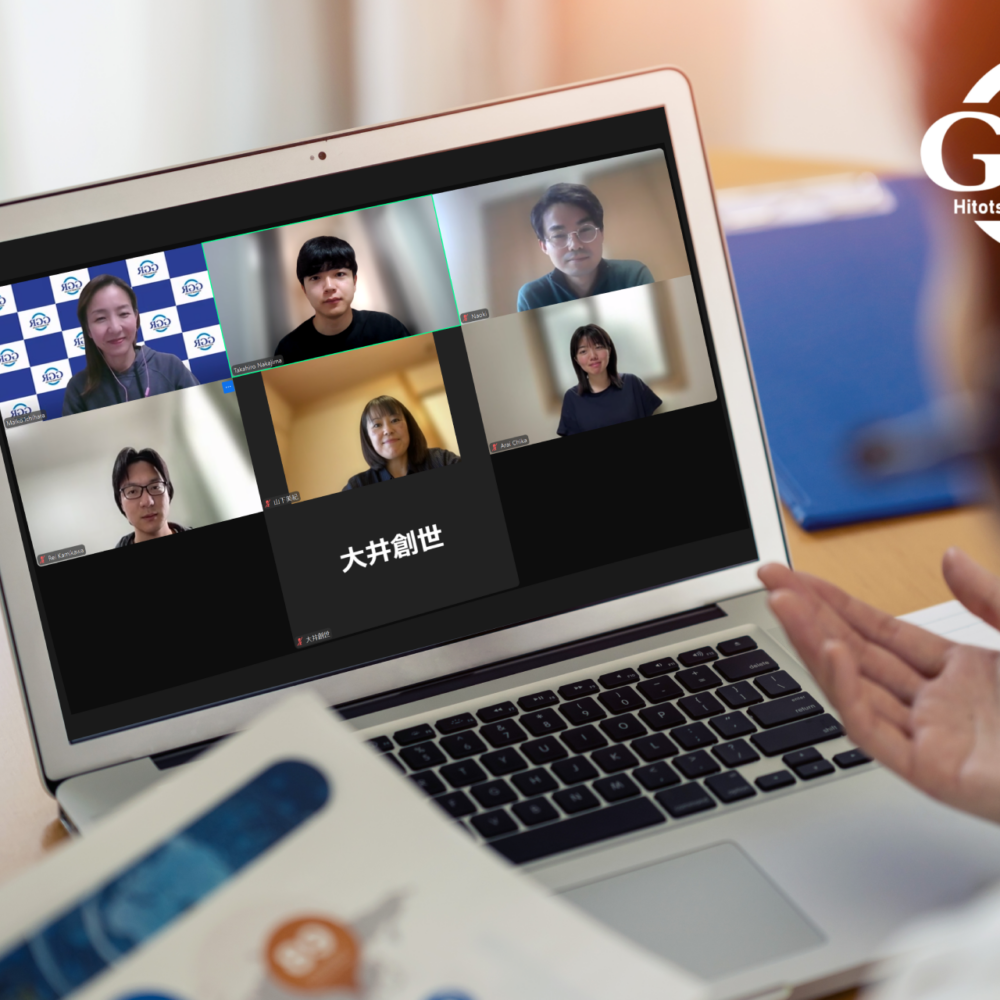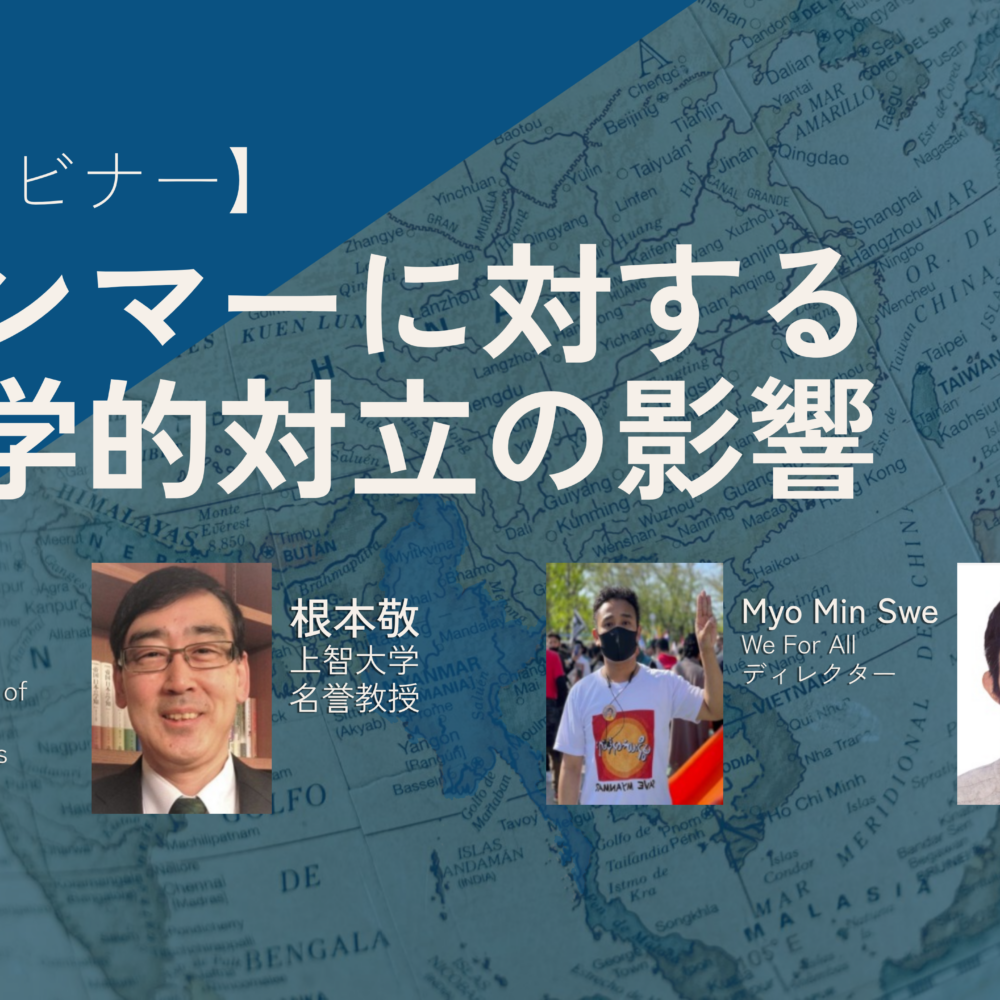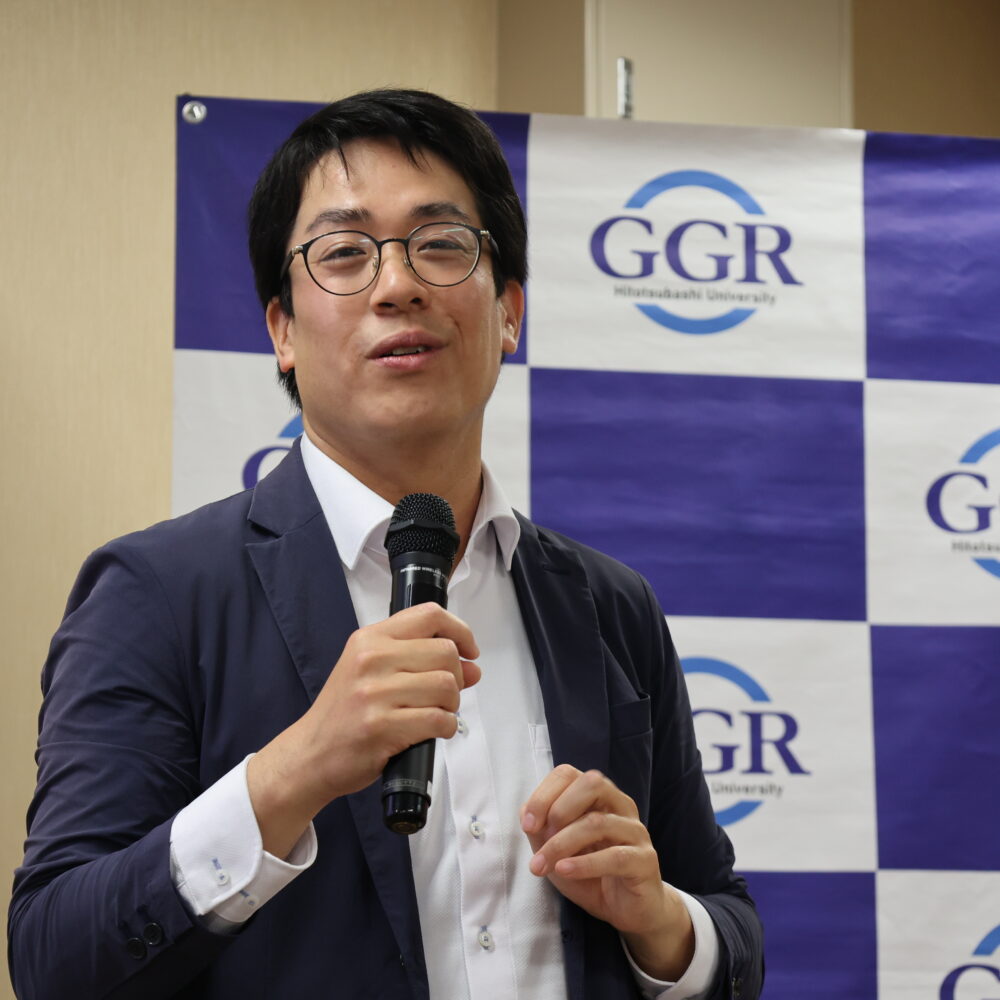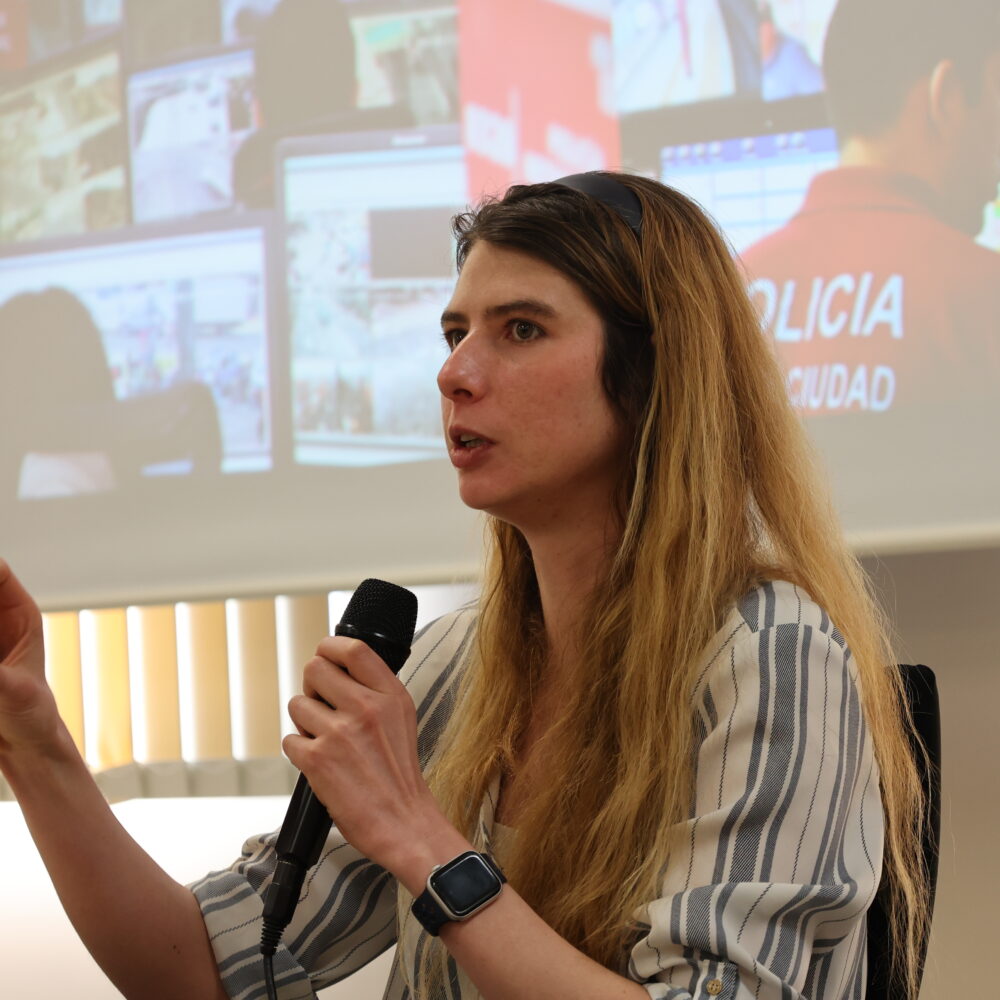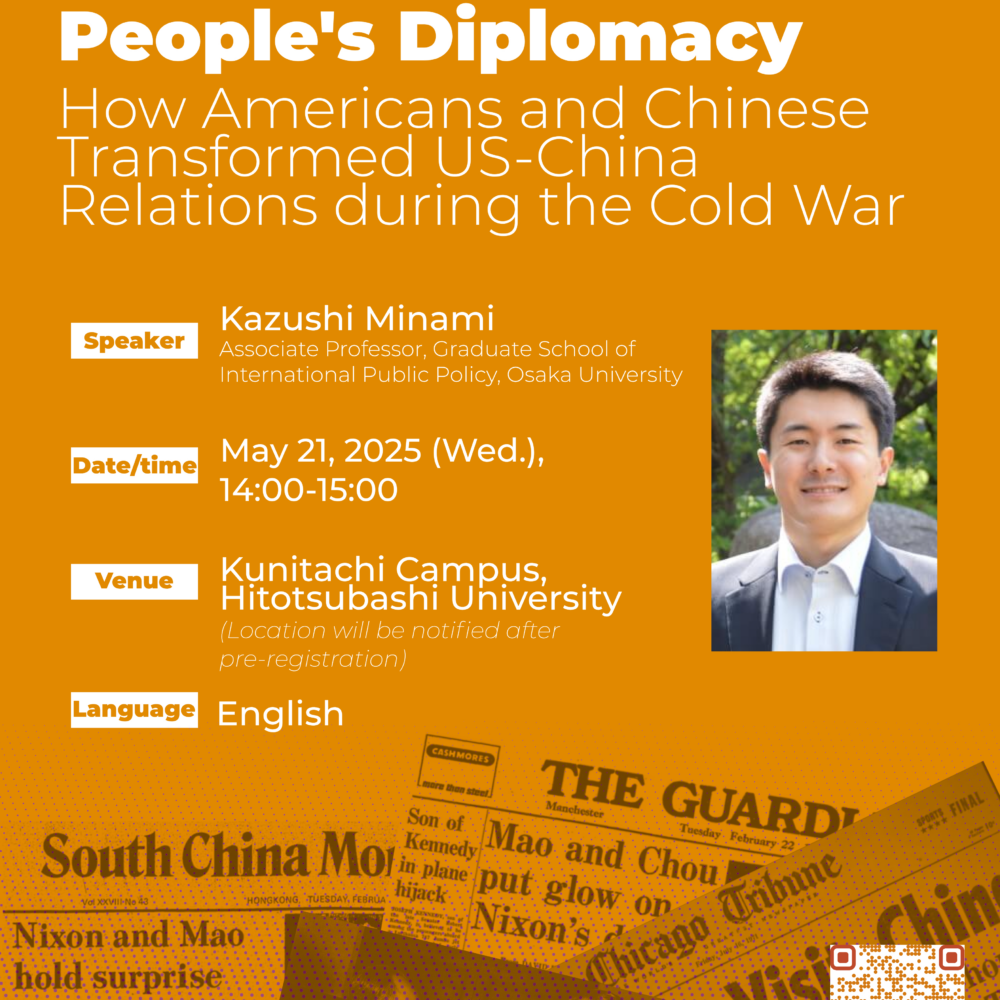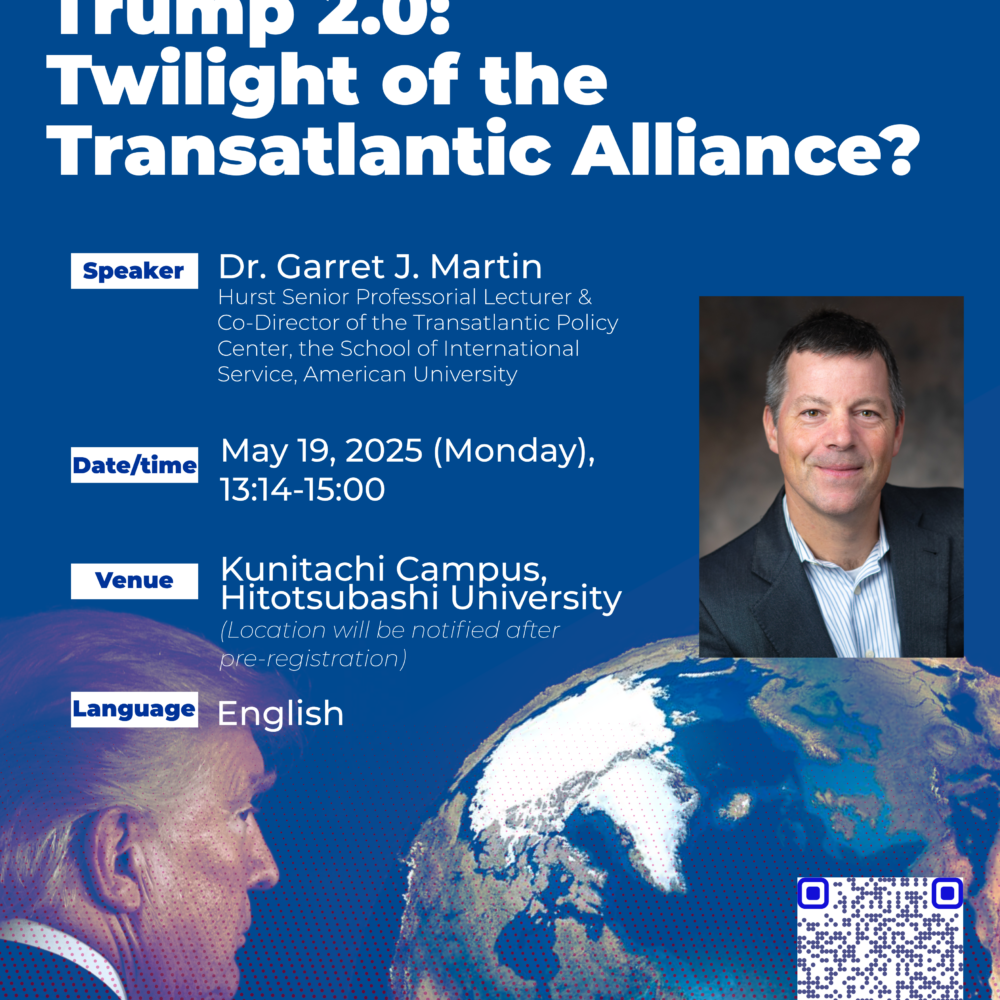Upcoming events
No Posts.
Read MorePast Events
【GGR Brown Bag seminar】Is China Building a Rival International Order and How Would We Know?
Event date:July 7, 2025 (Monday)
Democracy and Human Rights Program
【GGR Brown Bag Lunch Seminar】Refugee protection and the role of civil society: a comparative study of Japan and South Korea
Event date:June 27, 2025 (Friday)
Democracy and Human Rights Program
Democracy and Human Rights Program
Democracy and Human Rights Program
Democracy and Human Rights Program
【GGR Talk Session】How Americans and Chinese Transformed US-China Relations during the Cold War
Event date:May 21st, 2025 (Wednesday)
News
Democracy and Human Rights Program
Spreading fake videos inciting “Okinawan independence”[In Japanese]
July 11, 2025
On October 4, 2024, an article based on an interview with Professor Maiko Ichihara (Graduate school of Law) titled “Spreading Fake Videos Inciting ‘Okinawan Independence’” was published in the Nihon Keizai Shimbun. The article reported that the Nihon Keizai Shimbun analyzed accounts spreading fake videos inciting Okinawan independence on social media by using AI, and found that behind them were information operation accounts responsible for spreading the content. Professor Ichihara pointed out that even though the disseminated Okinawa independence demonstration videos were clearly lie, they created the impression of linking Okinawa with China, and thus had sufficient effect to stimulate public opinion in Japan.
Democracy and Human Rights Program
Comment on “’America is Back’: Trump’s 99-Minute Self-Congratulatory Speech – 5 Key Takeaways” [In Japanese]
July 01, 2025
On March 5, 2025, a comment on the Asahi Shimbun article “'America is Back': Trump's 99-Minute Self-Congratulatory Speech – 5 Key Takeaways” by Professor Maiko Ichihara (Hitotsubashi University Graduate School of Law) was published. This article explains President Trump's policy speech. Professor Ichihara notes that, unlike typical speeches, the President highlighted his achievements without Congress, and that the address included a substantial amount of misinformation and misleading information.
Democracy and Human Rights Program
Comment on “President Trump Orders Temporary Suspension of Military Assistance to Ukraine to See ‘Good Faith’” [In Japanese]
June 27, 2025
On March 4, 2025, a comment on the Asahi Shimbun article, “President Trump Orders Temporary Suspension of Military Assistance to Ukraine to See ‘Good Faith’” by Professor Maiko Ichihara(Hitotsubashi University Graduate School of Law) was published. This article reports on his order to temporarily suspend military assistance to Ukraine. Professor Ichihara analyzes that President Trump's aim is to maximize his own economic interests. In light of this, the professor says it is necessary to investigate the structure of interests with Russia. And she also argues Japan needs to work to get the U.S. back on track and to seek to diversify its partner countries.
Democracy and Human Rights Program
Comment on “‘With Ukraine,’ European express solidarity after breaking down summit between U.S and Ukraine” [in Japanese]
June 20, 2025
On March 1, 2025, a comment by Professor Maiko Ichihara (Graduate School of Law, Hitotsubashi University) on the Asahi Shimbun article, “‘With Ukraine,’ European express solidarity after breaking down summit between U.S and Ukraine,” was published. This article explains the breakdown of the summit meeting between President Trump and President Zelensky on February 28. Professor Ichihara comments on the need for Japan to join with Europe in setting the agenda for the U.S., rather than remaining silent about the moves of the U.S.
Democracy and Human Rights Program
Interview: “Democracy Threatened by Elected Leaders – Populism’s Illusion for Voters” [in Japanese]
May 19, 2025
On January 16, 2025, the Asahi Shimbun published an article titled "Democracy Threatened by Elected Leaders: Populism's Illusion for Voters," featuring an interview with Professor Maiko Ichihara of the Graduate School of Law. The article discusses potential shifts in U.S. democracy in light of the inauguration of a second Trump administration. Professor Ichihara highlights the tendency for populist regimes to become more perilous during their second term compared to the first, expressing concern that democratic backsliding in the U.S. could accelerate further. She points to several phenomena already evident during the presidential election, including the shrinking of free discourse in society, marked by media self-censorship, self-imposed restrictions by universities and think tanks that underpin academia, and the erosion of fact-checking mechanisms. Furthermore, Professor Ichihara addresses the potential ripple effects of democratic backsliding in the U.S. on the global stage. She emphasizes that for the U.S. to continue its role as a standard-bearer for democracy, it must seek ways to bridge societal divisions.
Democracy and Human Rights Program
Participation in the Webinar: “Disinformation: A Common Threat to Democracies and the Liberal World Order” [in Japanese]
May 12, 2025
On January 14, 2025, the video of the webinar "Disinformation: A Common Threat to Democracies and the Liberal World Order," in which Professor Maiko Ichihara of the Graduate School of Law participated, was released by the Foundation for Strategic Research (FRS). This webinar discusses the impact of disinformation on democracy and the liberal international order, as well as the strategic challenges it poses. Professor Ichihara first addressed the difficulties in countering disinformation, highlighting how the politicization of fact-checking undermines the effectiveness of disinformation countermeasures. She then used the 2024 U.S. presidential election as a case study to explain how authoritarian regimes strategically employ disinformation to interfere with election outcomes and deepen societal divisions. Finally, Professor Ichihara emphasized that while countering disinformation is crucial, it is also essential to consider the broader impact of malinformation.
Democracy and Human Rights Program
Comment on “Democratic Party For the People to Enter Policy Talks with Ruling Coalition: Consideration of ‘Increased Take-Home Pay’ in Economic Measures” [in Japanese]
May 09, 2025
On October 30, 2024, a comment of Professor Maiko Ichihara of the Graduate School of Law on the Asahi Shimbun article, “Democratic Party For the People to Enter Policy Talks with Ruling Coalition: Consideration of 'Increased Take-Home Pay' in Economic Measures” was published. This article reports on the Liberal Democratic Party's (LDP) decision to initiate policy discussions with the Democratic Party For the People (DPFP) following the ruling coalition’s failure to secure a majority in the House of Representatives election. As part of its comprehensive economic measures, the LDP intends to incorporate certain policy proposals from the DPFP, the third-largest opposition party. Professor Ichihara commented on the potential implications of DPFP lawmakers writing “Yuichiro Tamaki” in the runoff vote for prime minister. She pointed out that politicians who call on the public to vote must maintain consistency in their actions and that engaging in behavior that contradicts their political stance is problematic. Furthermore, she noted that such actions could erode public trust in politics and set an undesirable preceden
Global Risk and Crisis Management Program
Appearance in “80 Years After the War: Don’t Let Today Become Prewar” [in Japanese]
May 09, 2025
On January 9, 2025, Professor Nobumasa Akiyama of the Graduate School of Law appeared on Deep News, a program titled “80 Years After the War: Don't Let Today Become Prewar.” The program discussed strategies to prevent the recurrence of nuclear devastation considering rising global nuclear threats, including Russia's nuclear intimidation and China's nuclear force buildup. Professor Akiyama highlighted that the risk of nuclear threats from Russia remains high. While maintaining ambiguity around "red lines" is an effective means of preserving deterrence, he noted that the U.S.'s incremental deployment of forces complicates the interpretation of Russian intentions. This, in turn, has led Russia to continuously issue new signals, further destabilizing the situation. Furthermore, in the era of military arms races between the U.S., China, and Russia, traditional arms control treaties face challenges. Professor Akiyama emphasized the need to discuss crisis management from the perspective of how to avoid the worst-case scenarios. Lastly, he outlined specific measures to prevent nuclear war, including the importance of avoiding the sending of misleading signals, establishing effective deterrence systems, and understanding each country's perception of threats.
Democracy and Human Rights Program
Comment on “UN CEDAW Recommends Japan to Introduce Separate Surnames for Married Couples and Amend the Imperial Household Law” [in Japanese]
May 07, 2025
On October 29, 2024, a comment of Professor Maiko Ichihara of the Graduate School of Law on the Asahi Shimbun article, “UN CEDAW Recommends Japan to Introduce Separate Surnames for Married Couples and Amend the Imperial Household Law” was published. The article discusses the "concluding observations" issued by the United Nations Committee on the Elimination of Discrimination against Women, which include recommendations to the Japanese government. Professor Ichihara commented that while Japanese citizens who marry foreign nationals are not required to change their surname in the family registry, those who marry Japanese citizens are forced to adopt the same surname. She pointed out that this system discriminates against Japanese citizens who marry other Japanese citizens compared to those who marry foreign nationals.
Democracy and Human Rights Program
Comment on “Penalty for ‘Nose-Exposed Mask’ During Shogi Match Ruled Lawful; Player’s Lawsuit Dismissed by Tokyo District Court” [in Japanese]
April 22, 2025
On October 18, 2024, a comment of Professor Maiko Ichihara of the Graduate School of Law on the Asahi Shimbun article, “Penalty for 'Nose-Exposed Mask' During Shogi Match Ruled Lawful: Player's Lawsuit Dismissed by Tokyo District Court” was published. The article discusses a lawsuit filed by Hachidan player Ichiro Hiura against the Japan Shogi Association, claiming that it was unjust for him to be penalized with a forfeit loss and a three-month suspension from matches for not wearing his mask properly during a shogi match. The Tokyo District Court ruled against his claim and dismissed the lawsuit. Professor Ichihara pointed out that although the Japan Shogi Association mandated mask-wearing at the time, the government's policy, which served as the basis for this rule, was merely a recommendation rather than a legal obligation. She further commented that treating a non-mandatory action as if it were a legal requirement and imposing sanctions accordingly risks excessively restricting individual freedoms.

